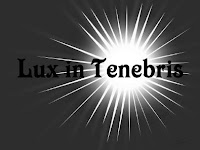I
am a Christian. It's none of your business, mind you, but it
probably is pertinent to any slant I might put on what I'm about to
say. And apparently, the jury is still out on my belief system
anyway. Why? Well, I've been personally told, "You're not
really a Christian because you're a __________ (insert any Christian
denomination which is not your own)." And we've all heard this
one: "You can't be a Christian because you're a Freemason."
I'd
just like to take this opportunity to thank anyone who has ever told
me those things for clarifying to me what I think and believe. There
was a time in my life when I thought that was between God and me, but
I'm so grateful you have set me straight. Sarcasm aside, some
Christians, it seems, want me to have a personal relationship with
Jesus Christ but get really upset when I keep it personal.
Having
said all that, let me drop the bombshell: Freemasonry is not a
Christian organization. When the cries of "heathen" die
down in response to that I'll continue to say there are many reading
this who would think, "Well, that's so obvious I don't even know
why he would say it." The rest of you are probably the ones
shouting "heathen."
What
a fine paradox. Some think we can't be Christians if we are
Freemasons and some think Freemasonry should promote Christianity.
Without
dropping some dry statistics, let me just acknowledge I live in an
area which is predominately Christian. Many even include it in the
so-called "Bible Belt." So being a part of an organization
that requires a belief in God and living where I do, it's not much of
a surprise to see many of my Brothers emphasize the Christian
influences in our fraternity; not just in our ritual, but also in our
activities. How many times have you been to a Lodge dinner when
someone wraps up a prayer "in the name of Christ?" This
happens so often in my area that a couple of years ago two former
Grand Masters (one a minister in a Christian denomination, one
Jewish) along with an eminent RWB asked me to reprint a Masonic
Service Association "Short Talk" article about its
inappropriateness. The gist of the article was, "Stop praying
Christian prayers in our Lodges... it embarrasses and perhaps even
humiliates our Brethren of other faiths."
Another
piece from the Masonic Service Association of North America puts it
concisely: "Freemasonry is not a religion, nor is it a
substitute for religion. It requires of its members a belief in God
as part of the obligation of every responsible adult, but advocates
no sectarian faith or practice. Masonic ceremonies include prayers,
both traditional and extempore, to reaffirm each individual's
dependence on God and to seek divine guidance. Freemasonry is open to
men of any faith, but religion may not be discussed at Masonic
meetings."
The
same, I might add, is true for the publications I edit: No discussion
or promotion of religion. And if you're sitting there thinking, "He
just said we shouldn't talk about religion but wrote a whole column
about it," respectfully, you missed the point... that point
being Freemasonry certainly includes Christianity, but it is an
ecumenical group. Those among us who have a hard time with that
should heed this observation from one of our most famous Brothers,
especially when sitting in Lodge:
"So
much blood has been shed by the Church because of an omission from
the Gospel: 'Ye shall be indifferent as to what your neighbor's
religion is.' Not merely tolerant of it, but indifferent to it.
Divinity is claimed for many religions; but no religion is great
enough or divine enough to add that new law to its code."
~Samuel Clemens
Steve
Harrison is a Past Master of Liberty Lodge #31, Liberty, Missouri.
He is the editor of the Missouri
Freemason
Magazine, author of the book Freemasonry
Crosses the Mississippi,
a Fellow of the Missouri Lodge of Research and also its Junior
Warden.
Published
in the Midnight Mason 04/30/12














